We know it's tough out there for many people working in the wool industry. The Detail visits the last commercial wool weaver in the country to find out how they're keeping their business going in an ever-changing landscape for textile production.
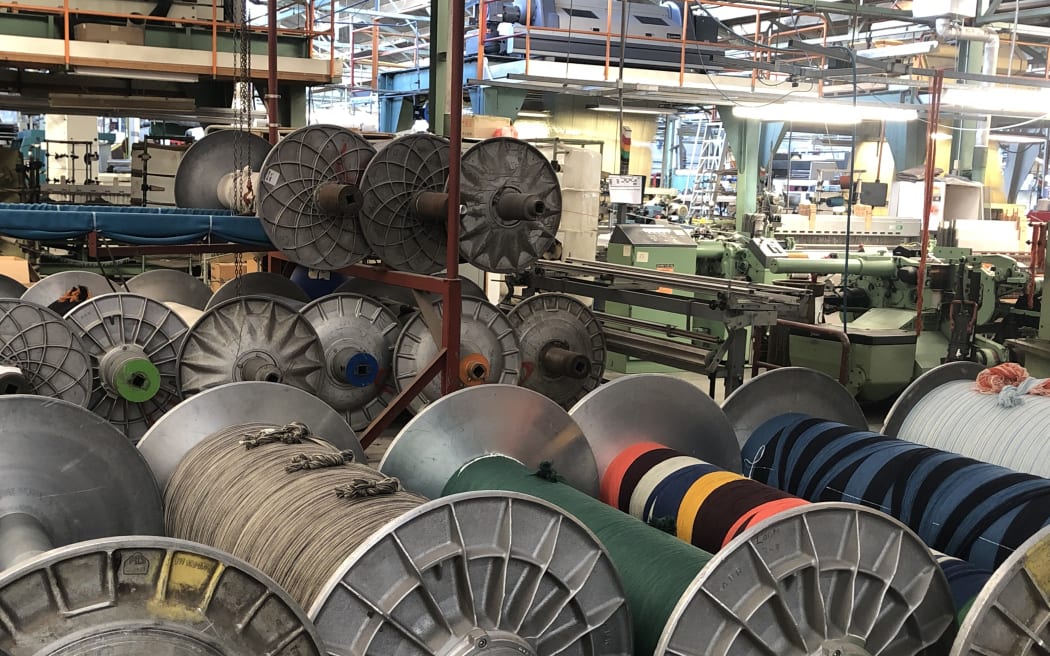
The factory floor at Inter-Weave. Photo: The Detail/Sharon Brettkelly
The cloth on every machine at Inter-Weave's factory in Auckland has a different story to tell about the mill's diverse business.
On one machine, cloth is being dyed in the colours of Air New Zealand for its economy seats, on another is upholstery for Queensland Rail. The cloth on a machine opposite is for a US wholesaler. A jacquard loom is working on blankets with special Māori designs for a small Tauranga firm.
The country's only commercial wool weaver is busy making all-wool upholstery, throws and fabric for safety-wear for a range of customers – including local farmers, whose spun wool is made into blankets which they then sell themselves. But there's room for more.
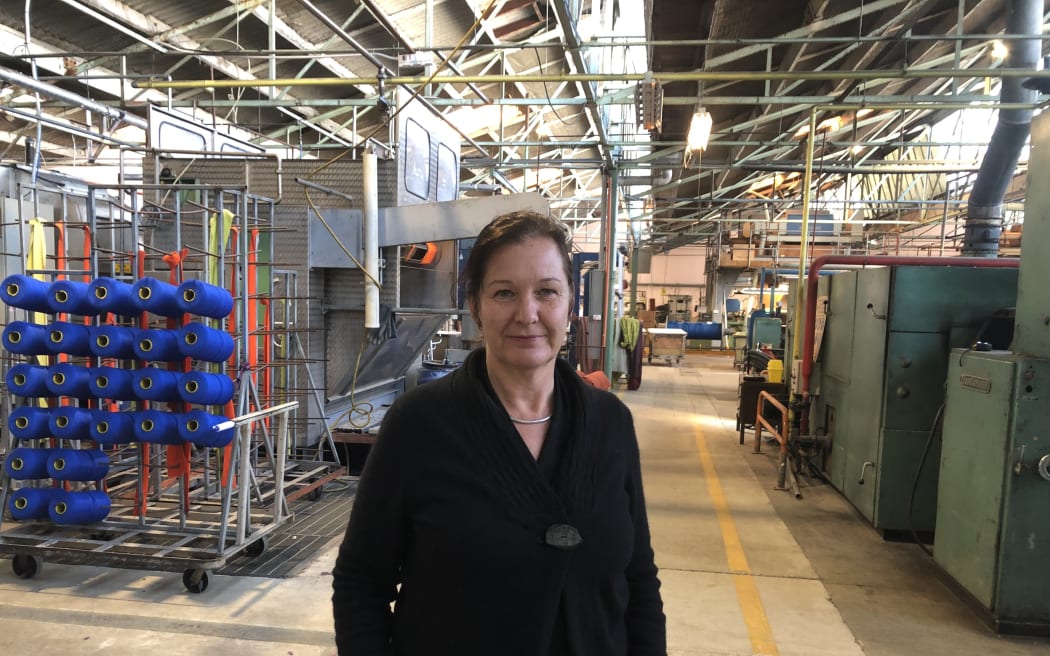
Tracy March on the factory floor. Photo: The Detail/Sharon Brettkelly
The mill has had to be diverse to survive, the managing director and part-owner Tracy March says.
"We have multiple machines here and they come from all over the world," she says.
"We try and invest in new machinery, but because we're in the middle of nowhere in terms of the textile trade in New Zealand, we have to be very self-reliant."
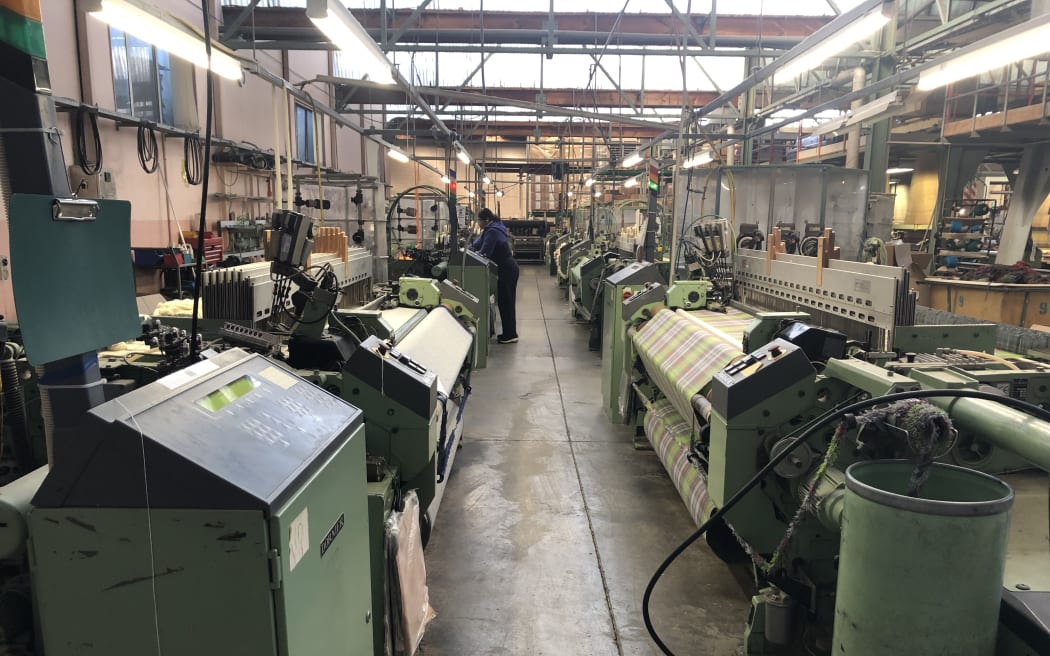
Part of the factory floor at Inter-Weave. Photo: The Detail/Sharon Brettkelly
Unlike European factories which are dedicated to one part of the textile-making process, such as weaving or wet and dry processing, Inter-Weave has to do it all under one roof.
March has invited The Detail on a tour of the 3500sqm Mt Wellington factory after our podcast about the woes of the industry, when wool broker Philippa Wright said: "find me someone who is making money in the industry and I'll shake their hand".
The business makes money March says, but it's not always easy.
The mill was set up nearly 50 years ago by Peter Woods, founder of Woolyarns, a Wellington wool spinner. Inter-Weave was the conduit for his product to get into the marketplace. UK-born March, who started there nearly 30 years ago as a designer, now owns it with two partners.
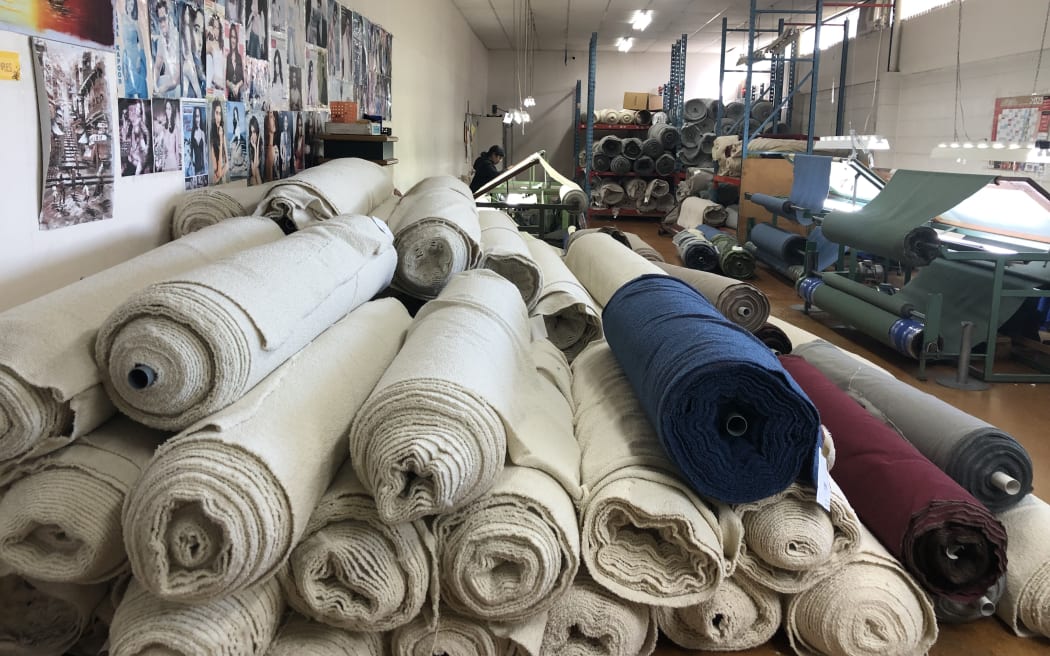
Woven fabric at Inter-Weave. Photo: The Detail/Sharon Brettkelly
"We work either reactively or proactively. We either go out with designs and people buy them, or they'll come to us with some ideas and we'll translate them into an end product for them," she says.
Despite the abundance of New Zealand wool, March says they have to source some yarn from offshore. March points to a machine that's processing upholstery fabric, where the worsted yarn needed for the cloth is no longer made in New Zealand and has to be brought in from India.
"But we always make sure it's either Australian or New Zealand wool when we can," she says.
The business has faced numerous challenges, the most recent being the impact of Cyclone Gabrielle on the East Coast farmers and the region's wool scourer.
But March says the most difficult part of keeping the factory open and running profitably is finding the right workers.
The firm employs 23 people, some of who have worked there for decades, including 73-year-old Soo Tutai.
"This is my job, doing the tying. If I'm not here the company shuts down," he jokes.
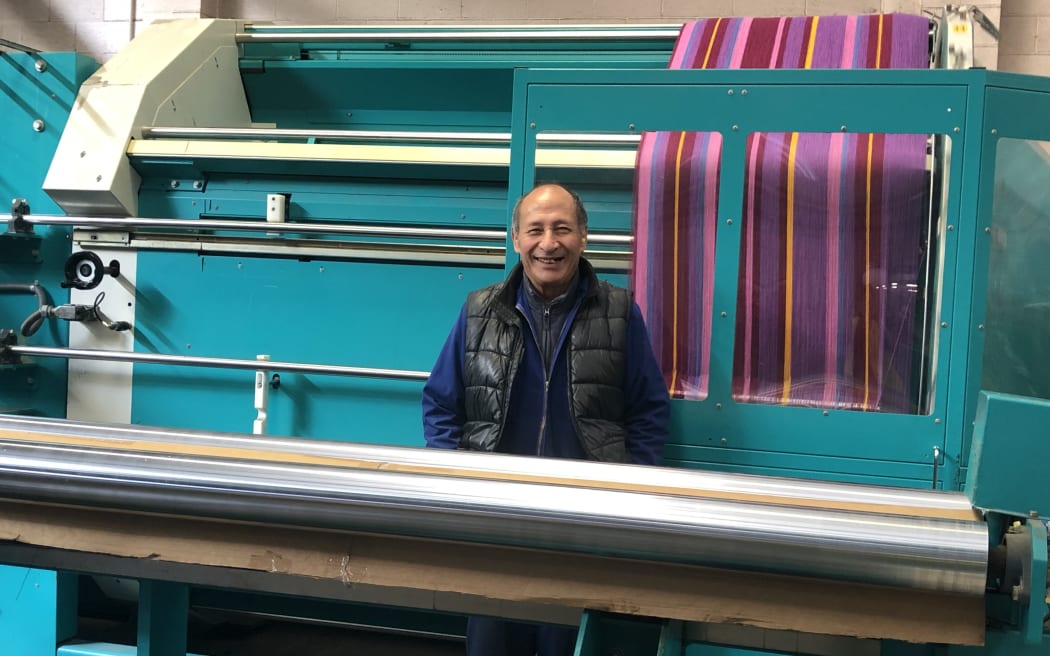
Soo Tutai, a long-serving staff member at Inter-Weave. Photo: The Detail/Sharon Brettkelly
March says they are training a new worker on Tutai's machine, but people don't stay in jobs for 30-odd years like he has.
"We have to make sure that everybody's multiskilled and that they can do different processes here," March says.
In the dye house, dyer Ray Porter has just joined the firm, but he's been associated with the company for 40 years as a technical advisor.
"Their dyer moved on so who do you get? There's no training going on the country, so I've come back into industry."
The job isn't attractive because it involves heavy lifting and working with boiling water and chemicals, says Porter, but he thinks women would be the best at it, because they have an eye for colour and are more fastidious.
Massey University textile graduate Caitlyn Jones joined the firm as a weaver to see how the process is scaled up from a small desk-top dobby loom.
"I never thought I would actually be able to make it into the commercial weaving industry in New Zealand without starting up my own small business.
"Textiles are something that you see everywhere but you don't really notice until you understand what it is," she says.
March wants more young people like Jones, but they need to share her passion.
"They have to be passionate for fabrics, they have to be passionate for wool and they're the only people who are going to come here and give us the next generation of workers who are passionate about the product."
Hear more about what happens at Inter-Weave by listening to the full podcast episode.
Check out how to listen to and follow The Detail here.
You can also stay up-to-date by liking us on Facebook or following us on Twitter.

Photo:


